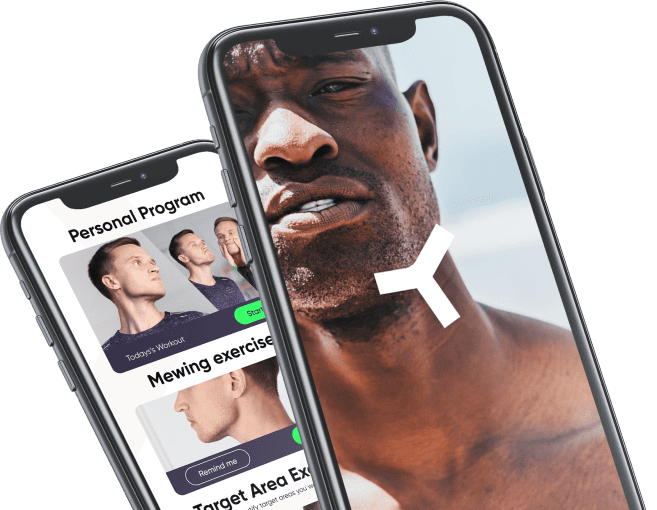Believe your spouse if they say your snoring is still keeping them up at night, even if you’re using a CPAP machine! Snoring with CPAP isn’t normal, but the issue can be effectively addressed.
While CPAP (Continuous Positive Airway Pressure) is a lifesaver for many snorers and sleep apnea sufferers, a study by the American Academy of Sleep Medicine suggests it might not completely silence the nighttime symphony. This doesn’t necessarily mean your CPAP isn’t working, but it does mean there are other factors at play.
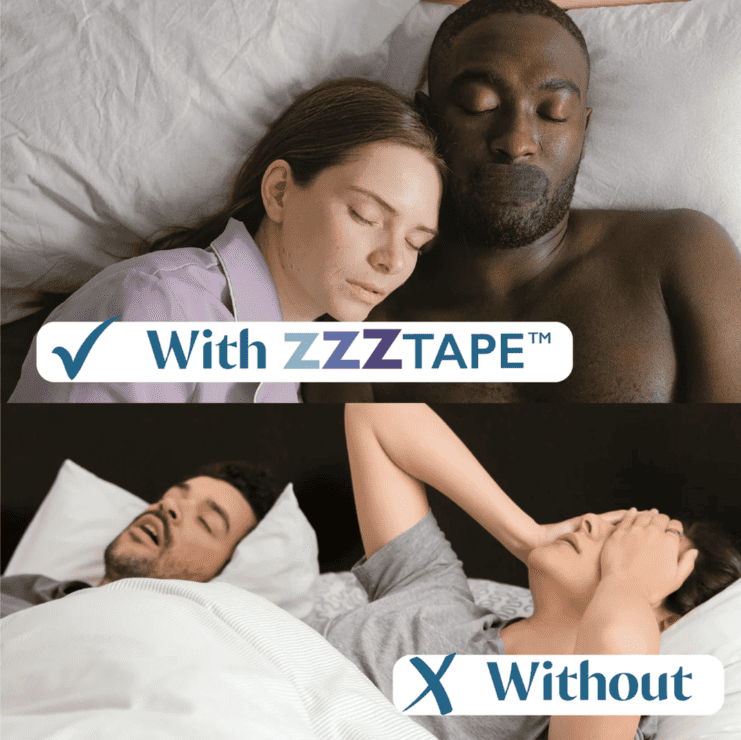
This article explores these factors and offers 11 practical tips to finally achieve a snore-free slumber. Keep reading to discover how!
Root Causes of Snoring with CPAP
Here are some of the main reasons why you might still snore even while using CPAP therapy:
- Sleep disorders
Even with the use of CPAP therapy, certain sleep disorders may persistently contribute to snoring. One such condition is positional sleep apnea, where the position of the body during sleep affects breathing, leading to snoring even with CPAP treatment. Additionally, complex sleep apnea, which combines elements of obstructive and central sleep apnea, can also result in continued snoring despite CPAP therapy.
- Mask leaks
If your CPAP mask doesn’t fit properly or leaks air, the pressurized air won’t effectively splint open your airway, allowing snoring to occur.
- Nasal Passage Blockage
Conditions like allergies, nasal congestion, or enlarged tonsils can contribute to snoring even with CPAP. These conditions can narrow your airway independent of the collapse that occurs in OSA.
- High tongue position
During sleep, your tongue muscles can relax and fall back, partially blocking your airway and causing vibrations, even with CPAP pressure.
- Dry mouth
Dryness in your mouth and throat can irritate tissues and exacerbate vibrations during sleep, leading to snoring despite CPAP therapy.
- Medications
Certain medications, like muscle relaxants or sedatives, can relax the muscles in your throat and worsen snoring, potentially reducing the effectiveness of CPAP.
- Medical conditions
Some medical conditions, such as heart failure or obesity, can make your upper airway more prone to collapsing, even with CPAP therapy, leading to persistent snoring.
How to Stop Snoring with CPAP Machine
1. Mask Fit Adjustments
A well-fitting CPAP mask is your gateway to a peaceful night’s sleep. Even small leaks can disrupt therapy and cause snoring. A snug fit ensures there is no leak and pressurized air reaches your airway, stopping vibrations that cause snoring.
Mask adjustment maximizes comfort. An improper fit can irritate the skin and cause discomfort, leading to restless sleep and increased snoring. If your mask is uncomfortable or leaks, you’re more likely to remove it during sleep, reducing therapy’s effectiveness.
2. CPAP Devices Pressure Settings Review
While CPAP provides continuous air pressure, the ideal setting can vary depending on your individual needs. If you’re still snoring, consulting your healthcare provider about adjusting the pressure might be the key.
A healthcare professional can assess your sleep data and adjust the pressure to effectively prevent airway collapse and minimize snoring, ensuring optimal comfort and therapy benefits. Sometimes, higher pressure is needed to overcome mask leaks and ensure proper delivery of airflow, reducing snoring.
Finding the right pressure balance is crucial. Too low, and snoring persists. Too high, and discomfort can arise. A healthcare provider can guide you towards the most effective and comfortable pressure setting.
3. Leak Troubleshooting
Mask leaks are sneaky saboteurs of CPAP therapy, allowing air to escape and causing snoring. Here’s how to identify and address leaks:
- Listen for whooshing sounds around the mask during use.
- Check for gaps between the mask and your face, especially around the nose and cheeks.
- Tighten the headgear gently to create a snug, but comfortable fit.
- Inspect the mask for cracks or tears and replace if necessary.
- Consult a healthcare provider for professional guidance on mask fitting and leak solutions.
By addressing leaks, you ensure optimal CPAP function and a quieter, snore-free sleep.
4. Ensuring Mouth Closure with Mouth Tape
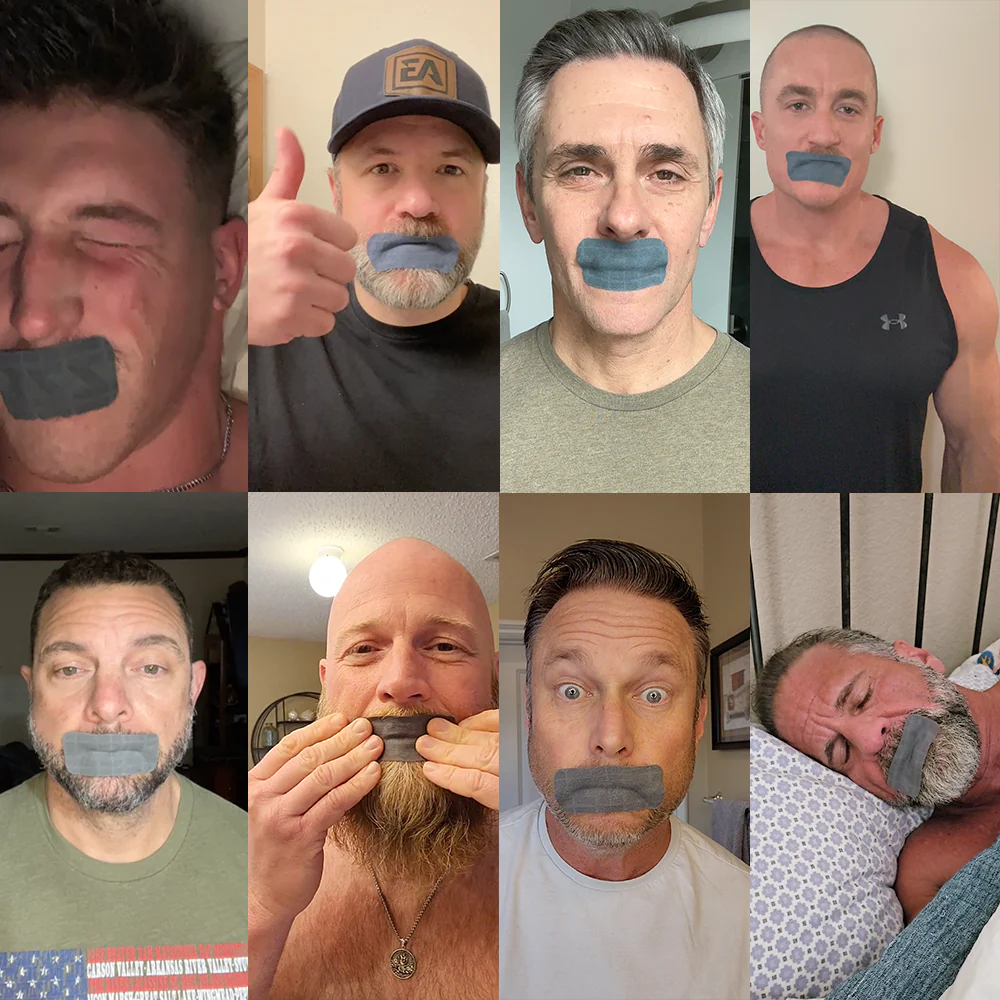
Mouth tapes are a novel solution to tackle snoring and enhance CPAP effectiveness by keeping the mouth closed during sleep. Using mouth tape not only reduces snoring but also potentially enhances the delivery of positive airway pressure from the CPAP machine to the nasal passage, which gives you all the advantages associated with nose breathing.
While some individuals with mild sleep apnea might benefit from using mouth tape alongside CPAP, it’s crucial to approach it cautiously.
By promoting nasal breathing, mouth tape can help address lingering snoring issues in CPAP users. However, it’s important to seek personalized advice to ensure safe and optimal use. Consulting a healthcare provider is key to navigating potential risks like breathing in exhaled air or disrupting the mask seal with the mouth tape.
5. Nasal Congestion Solutions

Nasal strips offer a straightforward and non-invasive approach to tackling nasal congestion and snoring, even while utilizing CPAP therapy.
By gently lifting and opening the nasal passages, these strips promote improved airflow, reducing the likelihood of mouth-breathing and subsequent snoring. This mechanism enhances the effectiveness of CPAP treatment by optimizing nasal breathing and facilitating better airway clearance.
Using anti-snoring mouth strips alongside CPAP can provide complementary benefits, as they address nasal congestion and snoring issues that may persist despite CPAP use. Their non-intrusive nature makes them suitable for individuals seeking additional relief without resorting to more invasive measures.
By promoting nasal breathing and reducing snoring, these strips contribute to enhanced sleep quality and overall treatment efficacy when combined with CPAP therapy. However, it is advised to consult with a healthcare professional to ensure proper usage and compatibility with individual treatment plans.
6. Oral Appliance Integration
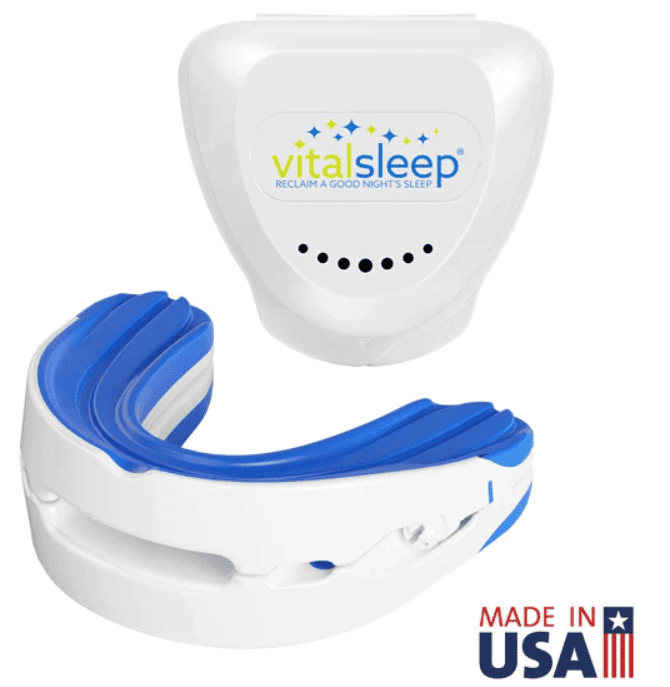
Combining the use of mouthpiece with CPAP therapy offers a dual-action approach to effectively address snoring. While CPAP therapy provides continuous positive airway pressure to keep the airway open during sleep, the oral mouthpiece complements this by specifically targeting snoring.
By advancing the lower jaw and opening the airway, the mouthpiece helps reduce the vibration of tissues in the throat that causes snoring. This dual-action solution maximizes the effectiveness of treatment, tackling snoring from both the nasal and oral pathways simultaneously.
Additionally, using an oral mouthpiece alongside CPAP therapy can provide individuals with more options for personalized treatment, especially for those who may experience residual snoring despite CPAP use alone. Here’s our roundup of the best mouthpiece for snorers to help you choose the right one for yourself.
7. Sleep Position Changes
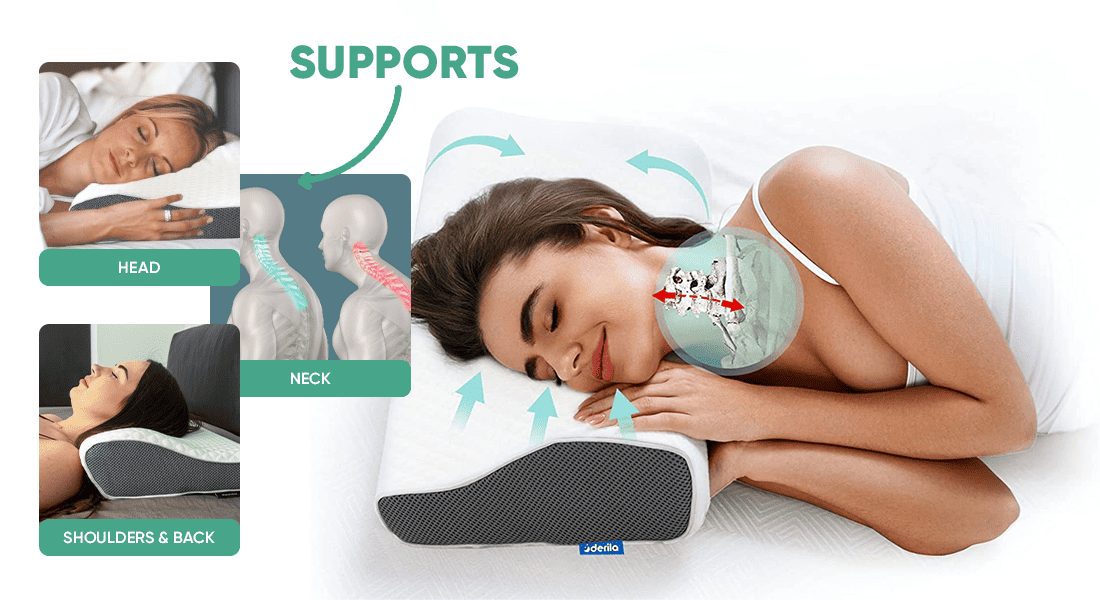
Changing sleep positions can complement CPAP therapy in reducing snoring by optimizing airway alignment. Utilizing a good quality memory foam pillow for CPAP users can provide the right positioning, ensuring proper support for the head and neck. By elevating the head and aligning the spine, this pillow helps keep the airway open, enhancing the effectiveness of CPAP treatment.
Additionally, sleeping on one’s side rather than the back can further prevent airway obstruction and reduce snoring. The combination of CPAP therapy and strategic sleep positioning significantly reduces snoring.
By incorporating a memory foam pillow into the sleep routine, CPAP users can maximize comfort and support while experiencing the full benefits of uninterrupted breathing.
8. Humidifier Use
Using a CPAP with a built-in humidifier offers significant benefits in reducing nasal congestion, and promoting nose breathing over breathing through the mouth.
By adding moisture to the air delivered by the CPAP machine, the humidifier helps soothe nasal passages and prevent dryness, making it easier to breathe comfortably through the nose. This reduces the likelihood of mouth breathing, which can contribute to snoring.
Moist air reduces irritation and inflammation in the nasal passages, further improving airflow and minimizing snoring episodes. Incorporating a CPAP humidifier into your sleep routine can enhance the overall comfort and effectiveness of CPAP therapy in managing snoring and sleep apnea.
9. Lifestyle Modifications and Weight Management
Healthy lifestyle choices and weight management are crucial in reducing snoring, and enhancing the effectiveness of CPAP therapy. Maintaining a healthy weight reduces excess tissue around the throat and airways, decreasing the likelihood of obstruction and snoring.
Lifestyle changes such as regular exercise and avoidance of alcohol and sedatives before bedtime can improve muscle tone in the throat and promote clearer breathing during sleep.
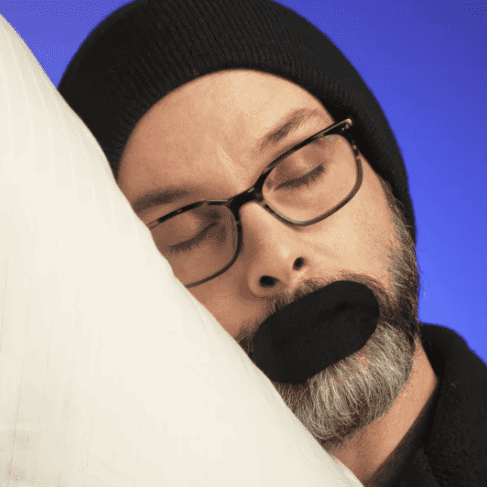
By adopting these lifestyle modifications alongside CPAP therapy, individuals can experience enhanced effectiveness in managing snoring and sleep apnea, leading to improved overall sleep quality and well-being.
What if You’re Still Snoring with CPAP?
If you’re still snoring despite using CPAP, it’s time to reach out to a healthcare provider for guidance.
Persistent snoring could signal issues like improper mask fit, air leaks, or incorrect pressure settings, all of which need professional attention. It’s also essential to consider other factors like positional Obstructive Sleep Apnea or obesity-related breathing problems, which may require specialized treatment.
Your healthcare provider can help tailor your CPAP therapy or explore alternative solutions like BiPAP or surgery if needed. Don’t hesitate to seek medical advice—it’s the key to effectively managing snoring and ensuring restful sleep.
10. Re-evaluating Sleep Apnea Diagnosis and Treatment
If you’re still experiencing snoring despite CPAP use, consider re-evaluating your sleep apnea diagnosis and treatment options. A comprehensive sleep study or consultation with a sleep specialist can provide valuable insights into your condition and help identify any underlying issues contributing to persistent snoring.
Exploring alternative treatments tailored to your specific needs may lead to more effective management of your sleep apnea. Don’t hesitate to seek professional guidance—it’s the first step towards achieving better sleep and overall health.
11. Advanced Snore Therapies and Surgical Options
If you’re still dealing with snoring despite using CPAP, there’s hope! Advanced treatments and surgeries can make a difference. Oral appliances and special devices offer alternatives to CPAP and might work well for you. Surgeries like uvulopalatopharyngoplasty (UPPP), laser-assisted uvuloplasty, nasal surgery, or soft palate implants are options for more stubborn cases.
Talking to a sleep specialist is key to finding the right solution for you. Exploring these advanced therapies and surgeries can give you new ways to tackle snoring and finally get some quality sleep.
A Holistic Approach to Eliminating Snoring with CPAP Therapy
Taking a holistic approach to snoring with CPAP therapy is essential for success. It’s not just about using the equipment—it’s about making lifestyle changes too. Products like nasal strips, memory foam pillows, and mouth tape can all complement CPAP use, helping to improve airflow and reduce snoring.

By combining these strategies, you’re addressing snoring from all angles, maximizing your chances of success. Remember, it’s not just one thing that makes a difference—it’s the combination of everything working together that leads to better sleep and a quieter night for you and your partner.



